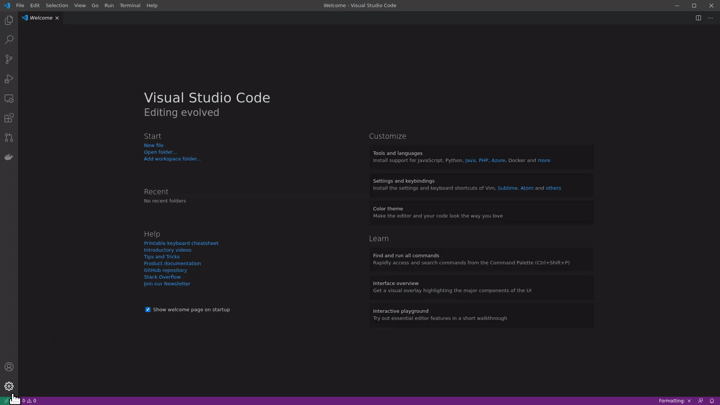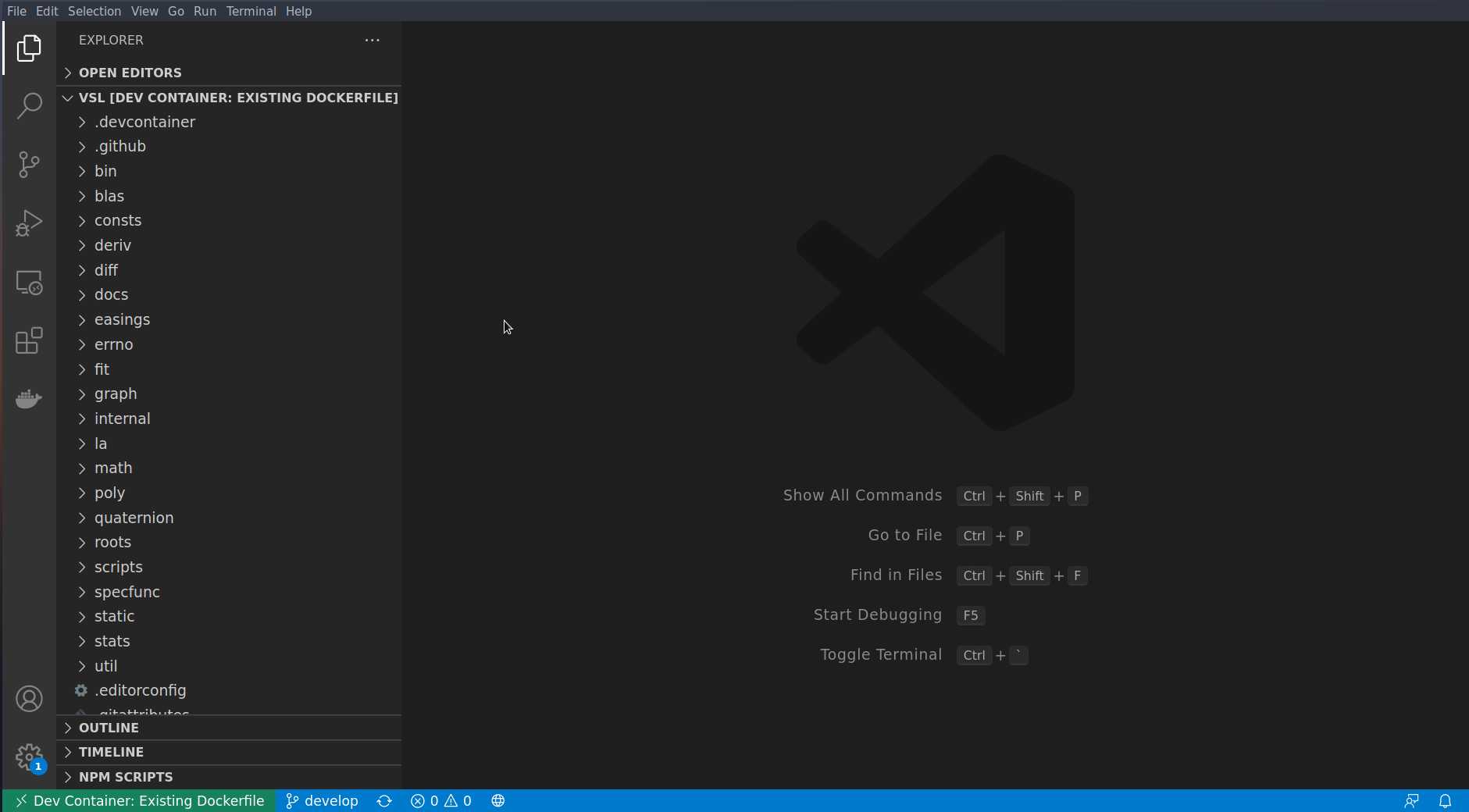vlang / Vsl
VSL is a Scientific Library with a great variety of different modules. Although most modules offer pure-V definitions, VSL also provides modules that wrap known C libraries that allow high performance computing as an alternative.
Docs
Visit vsl docs to know more about the supported features.
This library contains essential functions for linear algebra computations (operations between all combinations of vectors and matrices, eigenvalues and eigenvectors, linear solvers) and the development of numerical methods (e.g. numerical quadrature).
We link VSL with existent libraries written in C and Fortran, such as OpenBLAS and LAPACK. These existing libraries have been fundamental for the development of high-performant simulations over many years. We believe that it is nearly impossible to rewrite these libraries in native V and at the same time achieve the same speed delivered by them.
Installation
Because of C dependencies and other libraries, the easiest way to work with VSL is via Docker. Having Docker and VS Code installed, you can start developing powerful numerical simulations using VSL in a matter of seconds. Furthermore, the best part of it is that it works on Windows, Linux, and macOS out of the box.
Quick, containerized (recommended)
- Install Docker
- Install Visual Studio Code
- Install the Remote Development extension for VS Code
- Clone https://github.com/ulises-jeremias/hello-vsl
- Create your application within a container (see gif below)
Done. And your system will remain "clean".
Our Docker Image also contains V and the V Tools for working with VS Code (or not). Below is a video showing the convenience of VS Code + the V tools + VSL.
Install VSL locally
Because we use CV for linking VSL with many libraries, it is not enough to use the
so convenient v install or vpkg get functionality for installing VSL.
First we need to install some dependencies in order to have VSL working as expected.
Install dependencies
Debian/Ubuntu GNU Linux
$ sudo apt-get install -y --no-install-recommends \
gcc \
gfortran \
liblapacke-dev \
libopenblas-dev \
libssl-dev \
Arch Linux/Manjaro GNU Linux
$ sudo pacman -S openssl
The best way of installing OpenBlas/LAPACK is using openblas-lapack.
$ yay -S openblas-lapack
or
$ git clone https://aur.archlinux.org/openblas-lapack.git /tmp/openblas-lapack
$ cd /tmp/openblas-lapack
$ makepkg -si
Install VSL
Via vpm
$ v install vsl
Via vpkg
$ vpkg get https://github.com/vlang/vsl
Done. Installation completed.
Testing
To test the module, just type the following command:
$ make test # or ./bin/test
Contributors
- Ulises Jeremias Cornejo Fandos - creator and maintainer




